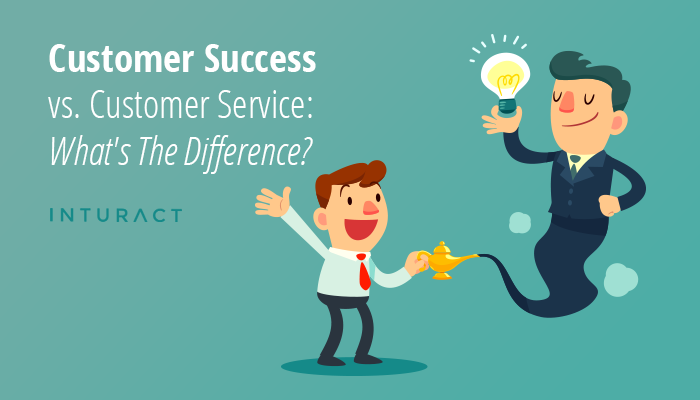
The long-term success of any business boils down to its relationship with customers. How your target audience sees your company and the value they prescribe to your product can greatly affect whether you can outshine your competition and gain market share. However, so much focus is placed on customer service that many businesses are missing out on perhaps an even more pivotal concept, namely that of customer success.
Now we know what you’re probably thinking. But aren’t customer service and customer success essentially the same? While both directly involve customer relations, understanding the nuanced difference between the two terms could help inform and empower your business as it continues to grow.
Moreover, the dynamic between company and your customers will likely benefit as well. So let’s delve a bit deeper into the misconception between customer success and customer service as well as how both can serve you.
An Evolving Customer Relationship
Before we explain what customer success has to offer, let’s clarify the definition of “customer service,” since this term has a far longer history behind it. An exceedingly traditional concept, customer service is essentially “the process of ensuring customer satisfaction with a product or service.” These interactions can occur during a transaction -- online or in-person, sales or returns -- as well as through any form of conversation between a company and customer.
In many cases, customer service involves a problem that a customer may have and finding a solution that satisfies their needs in an effective, timely manner. And therein lies the limiting problem with companies that focus solely on customer service. The relationship between company and customer can only flourish so much if it’s so strictly defined by these kind of problem-solving dilemmas. Customer success, on the other hand, takes that bond further, looking at the long-term potential for growth and engagement.
A New Era
Although we aren’t discrediting the value in customer service, modern business models -- such as the subscription-based approach of SaaS businesses -- call for a more proactive way to address customer concerns. Merely reacting to already established problems isn’t enough. A company should be at the ready to identify potential issues before they become a problem and search for opportunities to provide the best service possible. In this way, customers are likely to have an overall far more positive experience and will find more value in your products than they would otherwise. In addition, the swift action of companies that place a focus on customer success translates into customers’ deeper connection to the company itself.
Here a few other key benefits of customer success:
- Nurtures customers into brand advocates: Customers who feel that a company not only resolves their concerns but actively anticipates their needs may be the greatest untapped asset they have. When a reputation of trust and loyalty is cultivated, you can rely on customers to advocate for the value and service level of your business. You may opt to track product usage over time and ensure that the product is fulfilling the customer’s needs effectively. Then they can help spread the word about the success they’ve found with your product.
- Creates a natural increase in revenue: Because customer success takes a long-term look at your product’s effect on customer retention, your company will experience natural growth, simply stemming from the results you’ve delivered to your customer base over an extended period of time. Your customers will feel more connected to your product and services, and as such, their role as brand advocates (see above) will demonstrate a marked return on investment.
- Offers a predictive look at your business: With a little data analysis, you’ll be able to identify which types of customers your product and services are connecting with. This behavioral knowledge will in turn allow you to determine when customers are on the verge of leaving your product behind in favor of one of your competitors’ and, likewise, which ones are most firmly standing by your company. Reaching out to strengthen customers’ loosening ties, before they are aware they are loosening, to your product is the very essence of customer success, after all. This data can also be used to refocus your marketing efforts, if necessary.
The Secret to Success
Now that we have outlined the natures of both customer service and customer success above, you should be better prepared to incorporate both concepts into your business with ease. While customer service provides a more traditional perception of the dynamic you have with customers, customer success is steadily gaining traction as a growing phenomenon on its own. In fact, many companies have already put it into practice to great effect.
The business world, of course, is always changing, and the distinction between these two terms should serve as a reminder not to fall into complacency or slip into business as usual. To keep your company running at peak performance, you must remain vigilant and open to adjusting your business practices as the necessity calls for it. Perhaps you are already accounting for customer success in your operations, but if not, there’s no better time to demonstrate your commitment to your customer base.


